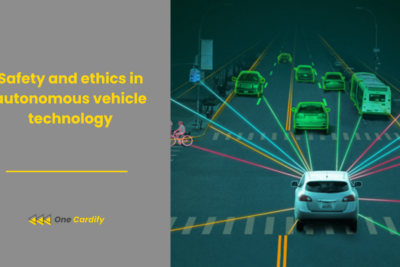
Ethical considerations of gene editing
In the fast-paced world of biotechnology, the ethics of gene editing has become a topic of ever growing public and academic interest. This paper examines the moral and ethical aspects of this revolutionary technology, providing some of its potential advantages and hazards.The technique of gene editing, for example, CRISPR-Cas9, has great potentials, ranging from eliminating hereditary diseases to improving human qualities. But the manipulation of genetic material gives rise to severe ethical concerns such as consent, access, and the natural course of human evolution.We intend to address these issues so that a fair perspective could be offered on gene editing where we support a cautious behavior giving due respect to the moral and ethical responsibilities.
Introduction to Genetic Modification Technology
The gene editing technology, which includes the CRISPR-Cas9 system, has changed the approach of scientists who modify organisms on the genetic level. Through permitting exact modifications to DNA, it offers new avenues for medical and agricultural progress. But this potential makes a lot of ethical dilemmas mostly in terms of how can it be used to alter human genetics. The possibility of both treating genetic diseases and creating attractive characteristics lead to thoughts on human destiny.In addition, the problems connected with fairness and access arise, as the gains from this technology can be uneven, in favor of the rich, aggravating the existing inequalities.The issue of environmental effects is discussed with GMOs presumably influencing biodiversity and ecosystem stability.
Related content
Related content
Consent and Genetic Legacy
An ethical dilemma in gene editing is that of consent, particularly with respect to germline modifications that affect future generations. Editing genes also affects the generations to come which do not have the ability to agree or disagree.This then poses the issue of whether the present generation have to the right to make decisions that change the genetic make up of the future human forever.As well, the issue of “playing God” arises, with opponents claiming that the deviation from the natural process of evolution violates moral and religious barriers.Open public discussion and strict regulations are recommended by some as measures to tackle these ethical concerns.
Benefits versus Risks
The potential of gene editing technology to eliminate genetic disorders and enhance human health is indisputable. Progresses might result in treatment of inherited disorders like cystic fibrosis or sickle cell disease, giving hope to millions.However, the possible risks such as unpredictable genetic disorders and loss of biodiversity call for careful consideration. The danger of early execution without knowing long-term implications is a major ethical worry.However, the line between the therapeutic and enhancement uses is becoming more and more vague, which makes the issue of what is normal in humans and in human abilities uncertain.The ethical obligation is to make sure that the gene editing is done properly, with stress on safety and equity.
Societal Implications and Accessibility
The arrival of gene editing technologies might aggravate social disparities. Without regulation, good genetics enhancement might be exclusive to those who can afford it, creating a division between the “genetically enhanced” and the “naturally born.”This discrepancy may lead to far-reaching consequences on social dynamics, job opportunities, and general societal stability.An ethical framework that provide strong security of equal access for these technology is what should be sought, to avoid the future of genetic elitism.
Future Directions and Regulatory Considerations
The gene editing technologies develop, also the ethical guidelines and regulatory framers should be aligned. Cooperation with other countries and dialogue is critical in building standards that ensure human rights and dignity.The formulation of ethical guidelines that will provide a balance between innovation and precaution is required to address moral controversies around gene editing.Active participation of different communities including edge communities to formulate inclusive policies that represent the needs and values of human beings.
Conclusion: Navigating the Ethical Landscape
While gene editing offers a great deal of hope for the further development of humanity, it is fraught with considerable ethical issues that should be treated with great care. Weighing the gains against the dangers needs a multidisciplinary team approach which should take ethical considerations into account in every stage.Creating an atmosphere of openness, public participation and international collaboration, gene editing can benefit the society in respect of human dignity and equality.The way ahead is intricate and filled with moral quandaries, but if wisely utilized, the advantages of gene editing could be achieved in an ethical way.
Gene editing refers to technologies that allow scientists to alter an organism's DNA precisely. These modifications can delete, add, or alter genetic material at particular locations in the genome.
Consent is a pivotal issue because germline editing affects future generations who cannot consent to the changes made to their genetic makeup, raising ethical concerns about the rights and autonomy of those individuals.
Gene editing could deepen social inequalities if access to these technologies is limited to the wealthy, potentially leading to a divide between individuals with genetically enhanced traits and those without.
The benefits include the potential to eradicate inherited diseases, improve crop resilience, combat pests, and enhance human capabilities, thereby improving quality of life and human health.
Risks include unintended genetic mutations, effects on biodiversity, ethical dilemmas regarding human enhancement, and the potential for exacerbating social inequalities.
Public dialogue is crucial in understanding societal values and concerns, ensuring transparency, and fostering robust regulatory frameworks that reflect public interest and ethical considerations.
International regulations are essential in establishing global standards for ethical practices, protecting human rights, ensuring safety, and preventing exploitation or unethical uses of gene editing technologies.
Exploring the Ethical Frontier of Gene Modification
With gene editing promising advancement in a wide range of sectors and posing numerous difficulties; ethical issues must be given central place while dealing with the challenges. The continuous discussion between scientific progress and ethical accountability is a sign of the dynamic nature of this discipline.Open dialogue with such ethical issues will make sure that gene editing technologies proceed to be beneficial and fair to all of humankind.Here is a journey to the future of the planet in the genome of life which means that careful, ethical steering is crucial in determining the future of our species and the world.
Final Thoughts: The Balance of Innovation and Ethics
The gene editing is an example of how humans and their inquisitiveness. However, it is also an ethical obligation of deep care and respect for the nature and equity.While moving through this new landscape, the decisions we make now will determine the genetic heritage of our descendants. It is on us as a society to ensure that this powerful technology serves humanity, following ethical principles and respecting the value of life.In conclusion, acceptance of the future of gene editing is a complex concept that requires a truly balanced and complicated approach that highlights the potential impact of these new technologies on our world.The ethical gene editing journey has just started, and it is us who are to steer its course to a brighter future for all.






Related Posts